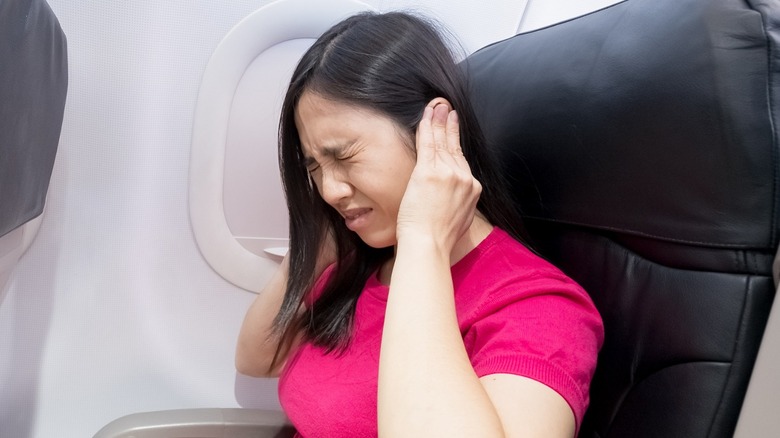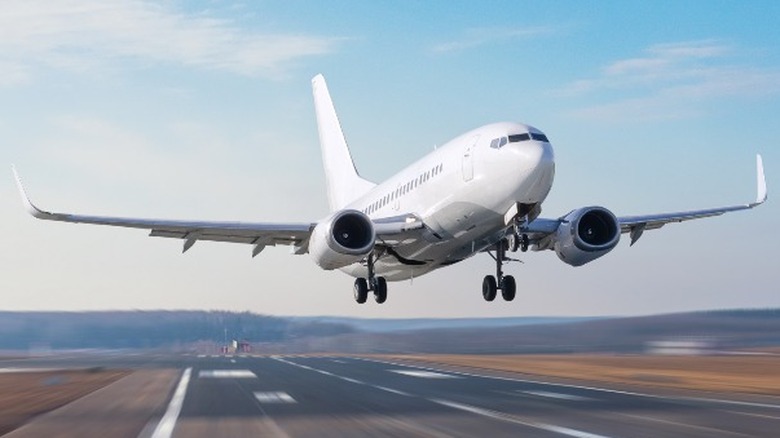What Happens If Your Ears Won't Pop After Flying
If you've traveled via plane at some point in your life, chances are you experienced clogged ears to some degree. What is often called "airplane ear" is common, and it's actually the biggest health issue for fliers (via WebMD).
Also known as ear barotrauma, a clogged ear occurs when the Eustachian tube — the tunnel that connects the back of the nose to the air-filled space of the middle ear — malfunctions, causing a pressure difference across the eardrum. You are likely experiencing ear barotrauma if your ear feels stuffed, sound is muffled, or if you have ear pain. A popping sound is a sign that your Eustachian tube has opened up again (via WebMD).
Dr. Ana Kim, an otolaryngologist and neurologist, told The Points Guy that ear popping will likely occur during takeoff and landing. "There's a rapid change in the barometric pressure, which causes a collapse of the Eustachian tubes and interferes with the normal airflow from the nose to the ear," Kim told The Points Guy. "When the Eustachian tube collapses, it interferes with airflow and there's not sufficient space around the eardrum."
Methods for popping your ears
To avoid ear barotrauma while flying, the Mayo Clinic suggests some preventive measures. Before your ears have a chance to clog, start yawning and swallowing during take-off and landing. This will keep the air flowing through your Eustachian tubes. You can also use the Valsalva maneuver of pinching your nostrils while keeping your mouth closed and gently blowing into your nose. Try to stay awake during take-off and landing so you can manage the pressure in your ears.
If your ears still won't pop, chances are it is not serious and the issue will clear up on its own. "In general I would wait a couple of days, depending on the level of discomfort," Kim told The Points Guy. She notes, however, that if you are in pain or your hearing is affected, you may want to consider seeing a doctor. "Your doctor can provide medications such as steroids, which are powerful anti-inflammatories, and can make sure that your hearing is okay," she says. She notes that inflammation can cause long-term hearing loss, and you should address that as soon as possible.
Chewing gum during takeoff and landing or taking a decongestant 30 minutes prior to flying can be effective. If you are traveling with infants or toddlers, give them a pacifier or bottle to prevent the imbalance of pressure and agitation. The rest of the passengers will thank you.


